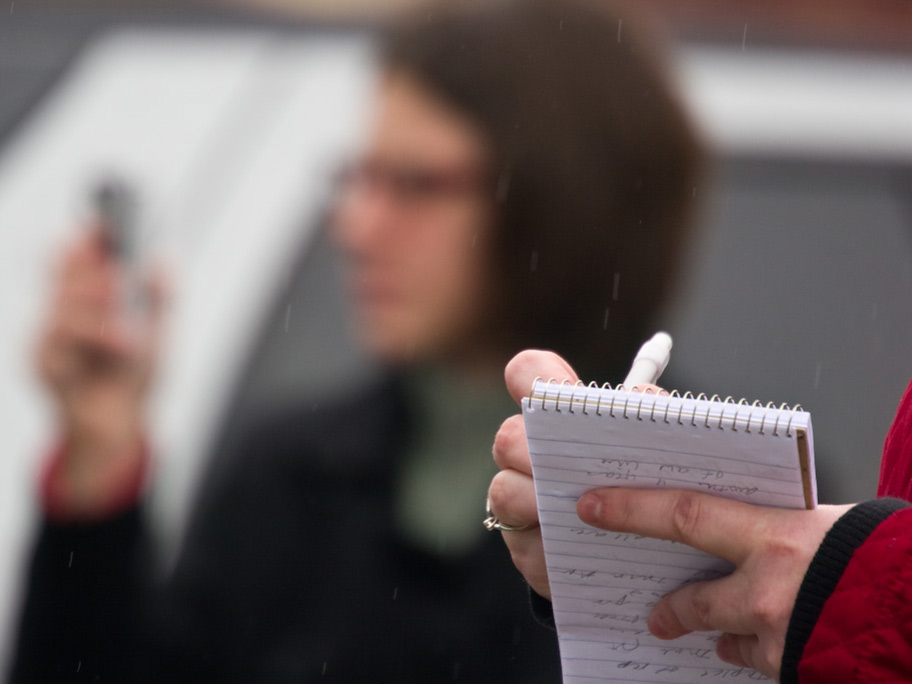
Tag: Tom Warhover
Why we should expand who gets credit in journalism
The byline treats some journalists in newsrooms as less important: a discussion with Alex Sujong Laughlin.
Epic history that inspired epic storytelling
A team from The Washington Post re-reported and retold the Jan. 6, 2021, assault on the U.S. Capitol with classic, credible and compelling journalism.
Pack a spare sock: A reporter’s winter weather kit
Dress warmly while reporting on a polar vortex. Stay dry. Hydrate often. Your mother told you these things. But we forget, especially while spending our days going from one warm building to another. During the most recent polar vortex, I saw a young photojournalist running cool water over his hands. They were red, and stinging. … Continued
Low-tech resource helps reporters focus on the story at hand
To all of you DIY reporters out there — and really, aren’t we all? — here’s a project that takes just 60 seconds to assemble and a lifetime to perfect. Like all DIY projects, you need some tools: A reporters’ notebook. Glue or tape. A printer and paper. Directions: Open a new Microsoft Word document … Continued
What is the role of a journalist in a post-objectivity world?
Editor’s note: Tom Warhover, Missouri School of Journalism associate professor, was part of a panel discussion titled “Objectivity in Journalism” June 6 at the Hammer Museum in Los Angeles. He was joined by political theorist Ainsley LeSure; Victor Navasky, editor emeritus of The Nation; and journalist Lewis Wallace, a Marketplace reporter who was fired after publishing the blog post “Objectivity is dead, and I’m okay with it.” These are Warhover’s opening remarks.
Fighting fake news with emotion
Editor’s note: Tom Warhover is an associate professor at the Missouri School of Journalism and the former executive editor of the Columbia Missourian.
Videos from Dodging the Memory Hole: Saving Born-digital News Content
In today’s digital newsrooms, a software/hardware crash can wipe out decades of text, photos, videos and applications in a fraction of a second. Digital archives can easily become obsolete due to evolving formats and digital systems used by modern media, not to mention media failure, bit-rot and link-rot. One recent survey found that most American … Continued






